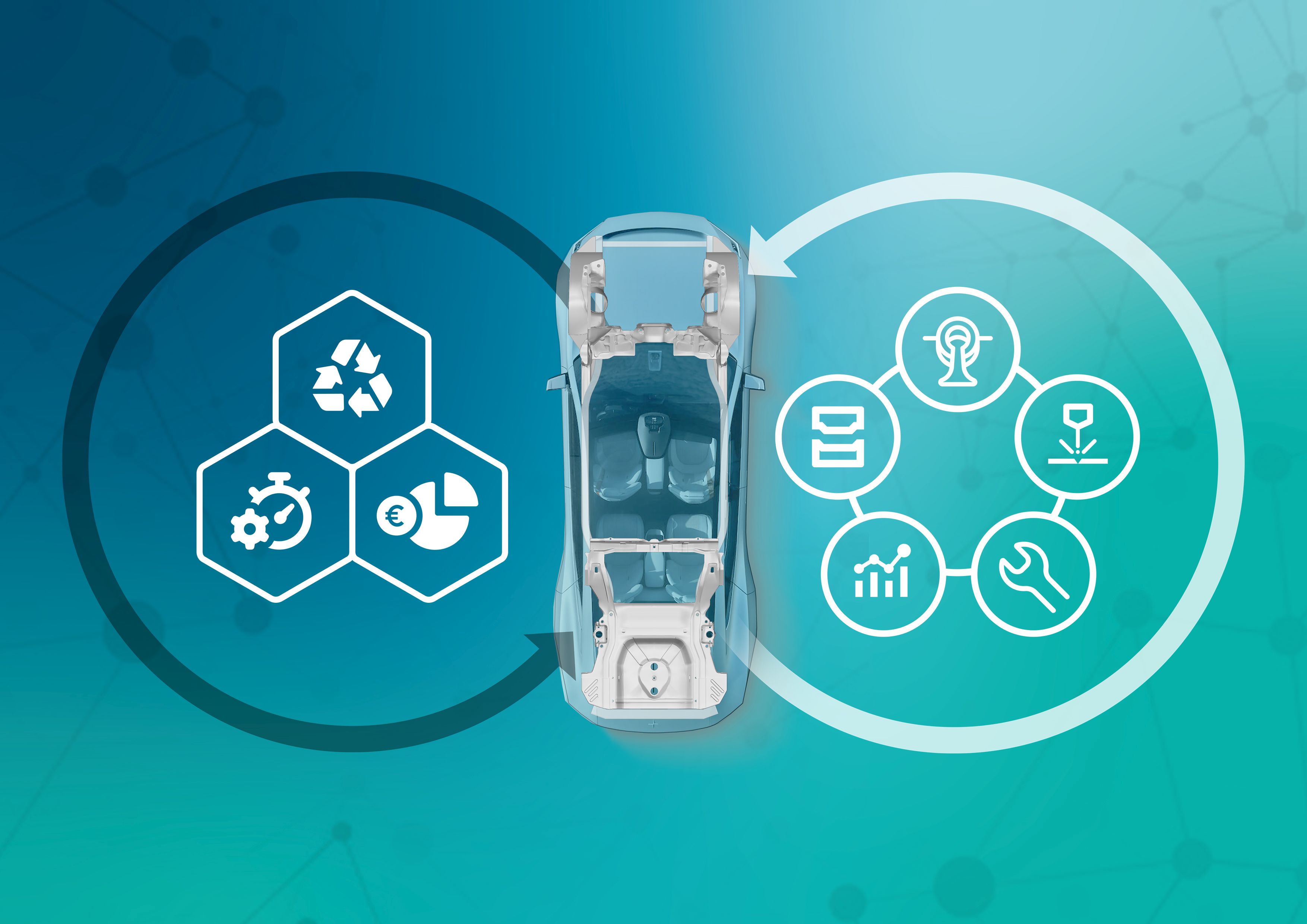
Flagship project

FutureCarProduction – comprehensive approaches for the evaluation and development of integral car body concepts for sustainable vehicle manufacturing.
The automotive industry is currently undergoing the greatest transformation in its history. The transformation to electromobility an important building block in achieving climate-neutral mobility by 2050, as stipulated by the EU's Zero Pollution Action plan. Whereas, so far, around 80% of CO2 emissions have been caused by exhaust gases in the use phase, with electromobility, the CO2 hotspot is shifting from the use phase to the production phase. After the battery, the car body is the second largest emission driver and thus in focus to achieve environmental sustainability. It is expected that proof of sustainability will become the determining success factor for new body concepts.
The consortium behind the Future Car Production project aims to develop comprehensive approaches to assess new car body concepts in the automotive industry. To this end, methods, processes and technologies must be established to methodically evaluate and technologically guarantee ecological sustainability while meeting the conflicting priorities of technical performance and costs.
FutureCarProduction is thus responding to Tesla's new “giga-casting” concept, which challenges globally established design and production methods for car body construction. In this new method, highly integrated large castings are cast in one piece from aluminum, replacing entire body segments that were previously joined from many individual sheets and components. The Fraunhofer consortium’s approach using comprehensive sustainability analysis will also take into account optimizations in material and product quality, repairability and crash safety.
Participating institutes
- Fraunhofer Institute for Casting, Composite and Processing Technology IGCV (igcv.fraunhofer.de)
- Fraunhofer Institute for Integrated Circuits IIS, Robot-Based Micro-Computed Tomography for Large Components (iis.fraunhofer.de)
- Fraunhofer Institute for Machine Tools and Forming Technology IWU (iwu.fraunhofer.de)
- Fraunhofer Institute for Material and Beam Technology IWS (iws.fraunhofer.de)
- Fraunhofer Institute for Manufacturing Technology and Advanced Materials IFAM (ifam.fraunhofer.de)
- Fraunhofer Institute for Mechanics of Materials IWM (iwm.fraunhofer.de)
- Fraunhofer Institute for Structural Durability and System Reliability LBF (lbf.fraunhofer.de)
- Fraunhofer Institute for Surface Engineering and Thin Films IST (Coordinator) (ist.fraunhofer.de)